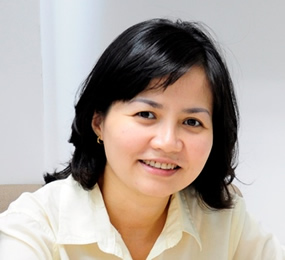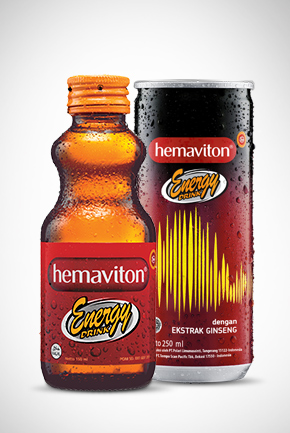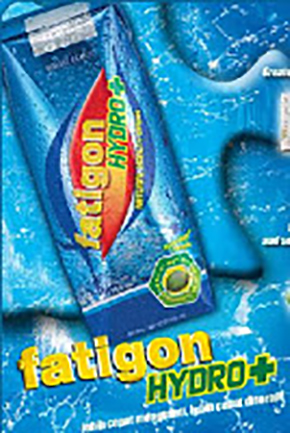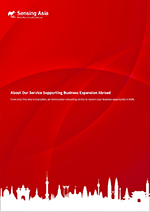
Source: Ms. Ly Bui
South East Asia Category Manager, Equity brands, Novartis Consumer Health
Having 10 years of marketing experience in leading multinational companies (PepsiCo, Wrigley, Beiersdorf and LG), Ly joined Novartis in 2012. She now oversees Equity brands category, including VMS, in Southeast Asia region as a category manager. She holds masters' degree in Commerce, major in Marketing and Finance from the University of Sydney.
Critical factor for newcomers to the 'competitive but growing' market
The competition in VMS market in the region is quite tough. Global giants such as Pfizer, GSK, Novartis, Bayer and Sanofi face tough regional competitors such as Kalbe, Takeda and United Laboratories to share the markets. Lists of top players are also very different across countries in the region. Any brands hardly play dominant role across countries. For example in Indonesia strong brands are Hemaviton (Tempo), You C1000 (Djojonegoro for House Wellness Foods) and Fatigon (Kalbe), whereas in Malaysia top names on the list are Appeton (Kotra), Blackmores (Blackmores) and Scott's Emulsion (GSK). Encroachment of herbal/natural products and fortified/functional food also make the competition harder.
While the market is quite competitive, newcomers can also benefit from market conditions such as market dynamics and increasing consumer awareness about the category. Above all, product innovation is one of the key competitive areas. A new formula which meets consumer needs can have the opportunity to quickly grab consumers' attention and excitement, plus good distribution and communication can bring new brands good growth. In addition, newcomers should have studies supporting their brands' efficacy, as credibility is one of main criteria for success, and not to mention VMS market is highly influenced by publicity both in a positive and negative way.
Cross-country differences in regulations
Countries in the region have different regulations towards the category; from the way to identify whether a product is OTC drug or food supplement, registration lead-time to regulations about promotion and communication activities. For example if a company wishes to launch a calcium mineral brand in Vietnam, it is normally considered as an OTC product which needs 18 months lead-time to get approval from the local authority, while if they launch the same product in Indonesia, it is considered as supplement and will need only 6 months to get an approval from the authority.
Different regulations lead to big differences in distribution ability and promotional practices in countries. Distribution of an OTC drug is limited in hospital and pharmacy, while supplement/nutrition can gain mass distribution to supermarkets. The regulations also control how the product can be presented and what kind of promotional activities can be allowed. For these areas if the product is classified as OTC drug, it will need to follow much stricter conditions.
Potential/opportunity for success from convenient format
Increasing consumer awareness of self-medication and increased income has raised demand for VMS. High cost of treatment also encourages consumers to use preventative measures such as supplements. Other factors of modern society such as the life under constant pressure and stress and the popularity of chain pharmacies also benefit VMS sales. The increasing health awareness can be seen in developing countries like Indonesia and Vietnam with high market growth for VMS, while countries like Singapore and Malaysia has the highest level of health-conscious consumers.
Regarding the popular types of vitamins and minerals, multivitamins is commonly preferred type across countries, generally positioned for energy and promoting physical growth. In single vitamin segment, vitamin C is still the main vitamin intake. Mineral segment recognizes strong growth of calcium due to strong communication about women's bone health from governments and MNCs.
There is also an interesting trend of herbal and natural supplements in some countries. In Indonesia where traditional Jamu medicines are very popular, the use of western medicine is limited, while western medicine is generally preferred across the market, especially Vietnam, Thailand and the Philippines. It should also be noted that herbal and natural supplements are controlled by different regulations from OTC.
As to the key driver of consumers' decision, interactions with consumers in the region revealed that efficacy is the most important purchase driver for them. Other important purchase drivers are affordability and recommendation from doctors or family/friends. Consumers prefer convenient formats such as pills and chewable, and some companies have expanded their portfolio with new formats. For example Hemaviton from Tempo increased its diversification into health drinks, and Kalbe launched the isotonic drink "Fatigon Hydro+" with great success.

© PT.Tempo Scan Pacific

© Solomon S. Pribadi
In contrast to Japanese VMS market where the market growth has slowed down compared to the boom in the 80s to 90s, the market in Southeast Asia is booming at the moment, against the backdrop of the shift to modern lifestyle and increasing income. The typical key purchasers in Southeast Asia are the emerging middle-class having busy working life, becoming more health-conscious and looking for supplement that works. This, to some extent, is in common with the key purchasers in Japan who are busy working women in their 30s and 40s. One thing that may be a little different from the context of the Southeast Asian countries is that one of the main consumer groups in Japan are those aged 60s and over reflecting the particular needs in the aging society. As the Southeast Asian population ages in the long run, Japanese companies staying one step ahead of others in terms of the development of anti-aging products may have potential in the market. Market regulation is also an interesting comparative factor. In Japan, following the change of regulations regarding the health claim of functional food in early 2015, market expansion is expected in the years ahead taking an example of US supplement/health food market which expanded rapidly after the introduction of the Dietary Supplement Health and Education Act in 1994. While it is unknown whether the Southeast Asian countries may follow the same pattern in the future in terms of regulatory framework, it may still be worthwhile to pay continuous attention to the regulation trends in Southeast Asian countries as it may directly affect the market potential as observed in other parts of the world.
(Maiko Kubota Consultant)
*source: Euromonitor international
Our Services
Rapidly providing most essential information for initial stage in business extension abroad, including local environment, business information, market information for individual industry. Industry information of the considered countries can be found here without spending hours and the need to contact multiple sources.

Market Information by Specific field: Market Information
Report on perticular B2C market information on consumer products and services, including market size, growth rate, entrant companies, brand share, distribution channels, market price. Investigates precise details within each category to understand market trend and entrant company conditions.
| Research objectives | Market Information by Specific field: Consumer Health(OTC,VitaminsandDietarySupplements) |
|---|---|
| Country | Indonesia, Philippines, Malaysia, Singapore, Vietnam, Thailand |
| Period | Seven business days after the date of deposit |
| Report file | PDF、Excel |

We also offer Regulatory Survey/Market study services.
Report contains regulatory survey on production system maintenance of local factories and other establishments, import/export, industry information on local sales and service, regulations of individual regions, standards, permits, licences, and other conditions.
Market study reports on consumer studies of specific industries and segments, including particular category products, service shareholding and utilisation factor, brand ownership and utilisation, spending and usage intentions.



